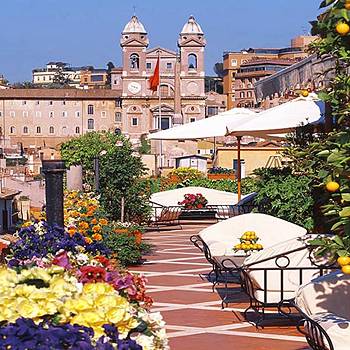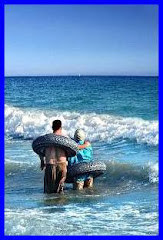
By Hoda Nassef
Egypt is rich and a haven for tourists, and offers all types of tourism, for all tastes, nationalities, and budgets. To name a few: Antiquities, Cultural, Recreational, Conference, Shopping, Health Tourism, Water Sports, Desert Safaris, as well as Song, Dance & Film festivals, and last but not least, Eco-Tourism.
According to experts in the field of Tourism, eco-tourism should be endorsed and promoted to its full potential, especially as we have several protected parks for rare animals and species of migrating birds in Sinai, El-Rayan Oasis, Fayoum and other spots throughout the country. This is what they don’t have in their own countries, and is atypical of their own tourism. This is what they would come for.
What is eco-tourism, and what are eco-lodges? According to Dr. Moustafa Fouda, Director of Nature Conservation Sector, Egyptian Environmental Affairs Agency, Ministry of Tourism: “The concept of eco-lodges, especially in, around and surrounding protected parks, caters to a new type of tourist, demonstrating that Egypt has more to offer than the Nile Valley and beaches. A more diversified tourism product will increase revenues, and some of these revenues can be reinvested in conservation. In principle, therefore, we should seek ways to accommodate eco-lodges within the protected area network of Egypt.”
Dr. Fouda said that the Eco-Lodge concept has a number of attractive features that are likely to influence the Nature Conservation Sector's attitude towards Parks and Tourism development. Egypt, along with most other countries, is well aware that it cannot afford an attitude of strict preservations with respect to its protected area heritage. He also confirmed that a compromise is inevitable along the principle that people must be encouraged to become partners for conservation and not become a threat to it. Conservation rooted in sound sustainable development principles will therefore guide us forward.
“Eco-lodges are an integral complement of the landscape, requiring that access be given to that environment. And that alone would access the needed environmental information and education. It is also sensitive to noise pollution, it promotes architecture harmony, design and material, and it is sensitive to the types of material used in its construction,” he added.
Eco-Lodges were first noticed, studied, and applied by the late Professor Hassan Fathy, the Pioneer of eco-lodges. According to Prof. Fathy, eco-lodges really began several years ago when he discovered in 1964 the “miracle” of Nubian architecture. Unlike what most may think, they are not enforced housing units for the poor, but rather a chosen way of life and culture.
Why should we imitate the West? It is true that our beautiful luxurious five-star hotels and beach resorts are flourishing here, but they are also flourishing all over the world. Its clientele in Egypt are mainly the Arab nationals, and also caters to some élite Egyptians who prefer this type of arrangement for a weekend, or a week, at the most. But even the élite and celebrities here now have their own private chalets and villas, which they now prefer to an expensive stay at any of these hotels or resorts, unless they are celebrating a wedding or want to be in the limelight.
The majority of vacationers, Egyptians or foreign residents, opt for a more casual accommodation and rustic atmosphere. They don’t need to pay so much for that. Why pay exorbitant hotel fees, when they stay out all day, then use the hotel only to sleep in? twenty years ago, Sharm El-Sheikh had only 3 and 4-star hotels. Thirty years ago, it wasn’t even on the map! Dahab and Nuweiba consisted of native Bedouin tribes, and the daredevils who ventured to go there, went by jeep and slept in tents. But, they loved it! They went back for more, guarding preciously their secret getaways! Nowadays, they are searching for new remote areas unknown to the rest of the world. But, alas! - To no avail. Therefore, eco-tourism is the solution and preferred alternative.
Our topography, climate, environment, and Protected Parks combined, are more suitable for casual tourism. Most of our visitors travel across the world in order to see our antiquities (Ancient Egyptian, Moslem, Coptic relics and monuments) – or to enjoy our superb unrivalled beaches. Hotel resorts abroad, even in Italy, have stony beaches, unlike our soft white or golden sand. Our turquoise water in the Northern coast, and aquamarine water of the Red Sea, are unique and rich in marine life and sea creatures, and the waters are crystal-clear and warm all year round. Most importantly, our coral reefs are incomparable. Added to that, Sharm El-Sheikh, Taba Heights, Taba, Marsa Allam and Ras Mohamed, are the best places in the world for diving, whereas Hurghada offers is unmatched for sailing, fishing, windsurfing, scuba diving, and underwater photography, and hosts international competitions for these sports. There exists eco-tourism at the Nubian eco-lodges, as well.
Consequently, the Ministry of Tourism is starting to encourage eco-tourism, which not only helps preserve our protected parks, but also endorses environmentally friendly hotels, “green hotels”, and environmental awareness amongst tourists, hotel managers and employees alike. New Eco-Lodges are in the process of construction. The first of its kind, constructed over ten years ago, 40 km south of Taba, is the Basata (“simplicity”) village. There is the Nesima Hotel in Dahab, which is a bit more modernized than the rest, and there are some eco-lodges in Siwa, in the Western Desert, as well. Everything else is built, or rather made, from natural resources and material of the same environment (such as wood, bamboo, clay, mud, palm leaves, etc.) Other eco-lodges are on their way, or in blueprint, such as in Wadi (Oasis) Ryan, overlooking the salty lakes of Fayoum.
According to Architect, Urban Planner & Environmental Consultant, Ali El-Sharkawi, the eco-development project at the Oasis in Fayoum is first of its kind, in that the whole development will apply strict environmental rules. It is also one of the protected areas, and is situated on top of the stony hills, overlooking the sunny view of the upper lake, with the dilated desert in the background. “This project,” he said, “is built in accordance to the strictly applied environmental rules and regulations (EEAA) for the terrain. It is also one of the protected areas, and the sports center is based on the same rules, in that it should respect the nature and habitat of the place. The whole project’s elemental materials are appropriate to the local ones, such as mud bricks, stone, tree trunks, branches, power wind stations, and a water treatment plant.” The project not only preserves the natural environment and habitat, but also gives work to the native Bedouins; local artisans and craftsmen (and craftswomen!), local horse and camel breeders, and the ‘hospitality’ people.
Back-packers, or economy tourists, who prefer nature and a casual leisurely atmosphere, would be delighted to discover the eco-lodges budding throughout Egypt. Besides, most tourists or local vacationers want to relax and get away from their humdrum lives, or stressful jobs, and see something new. The majority of tourists, if you notice, are getting back to basics, whether in life, religion, and even vacation destinations. Yes, they are getting back to nature, as with everything else.
We have three main types of environment of interest to the tourist:
1. Marine life
2. Desert, open and mountainous
3. Sites of significant bird migration
Each of these requires separate consideration in respect of lodging. Currently not all areas representing these three types are in protected areas with the result that there is a wide range of lodging on offer for tourists from the free market. There is everything from massive 5-star constructions to reed and mat hostels. We enter such a market with due caution.
Dr. Fouda further stated that for ‘conservationists’, every compromise with development has a number of costs associated with it. Guidelines must therefore be even more rigorous within parks than outside of them. Actions that compromise the overall conservation value of any protected area undermine the principles upon which it was declared and therefore serve no one in the long run. However, within this rather restrictive statement, there is a great deal of room for manoeuvre.
So what then of the TDA concept, and how might we adjust it to fit within the concepts of protected area management?
For tourism, there will be an obvious increase in tourists. This alone would be considered beneficial. But tourists visiting protected areas would be a new type of tourist, demonstrating that Egypt as more to offer than just the Nile Valley and beaches. A more diversified tourism product will increase revenues and some of these revenues can be re-invested in conservation. In principle, therefore, we will seek ways to accommodate eco-lodges within the protected area network of Egypt.
Let us please not forget that:
· Every track and trail for a motor vehicle is a source of erosion;
· Every visitor is a potential source of litter;
Visitors may be tempted to remove plants, animal remains, geological and prehistoric artefacts:
· Every facility that accommodates a visitor generates problems for solid waste management;
· Every facility erected has an impact on the landscape, and
· Every facility erected requires materials for construction.
So guidelines are required to keep these types of disturbances to a minimum. The TDA's vision is sensitive to many of these issues:
· It promotes architectural harmony in design and materials, and
· It is sensitive to the types of material used in construction.
· It is sensitive to noise pollution.
In many well-established parks on this continent, no building may be erected that cannot be completely removed within a specified time period. Such a statement challenges architects and designers to innovate without sacrificing client comfort.
In other situations tourist facilities in buffer zones are required to provide significant benefits to local communities; in some cases going as far as giving them land tenure rights which force tourism companies into direct contractual relations with local communities. This actively promotes a partnership between people and parks.
In Egypt there are unique challenges. Dr. Fouda’s statements asks the following:
1. How can we stop bird netting in northern Sinai without robbing people of an important source of income?
2. How can we cater for the mass religious tourism attracted to St. Catherine's Protectorate, without encouraging further unsightly developments?
3. Would Eco-Lodges be the answer to the pressures we face to open up more of the Red Sea islands?
4. Can we use Eco-Lodges to attract more of the international bird-watching community to Egypt's migratory splendours?
5. Are Eco-Lodges the way to open remote areas, such as Gabal (Mt.) Elba to high paying, low impact tourism, that can promote a better understanding of a fragile eco-system and the complex socio-economic structures that have evolved there?
6. If we are to take the next step, and in truth we already have in places such as St. Catherine's and Wadi (oasis) Rayan, then we must be absolutely clear as to the policy which will guide us. We need to be far more stringent than the TDA. After all, the job of any official tourism organization will always be to promote more tourism. More means also new job creations and foreign exchange revenues. More certainly does not mean better for those of at the TDA charged with the responsibilities of the conservation of natural resources. Dr. Fouda wryly commented that the 'more' in this case is usually more disturbances and more conflicts. However, they recognize that in Egypt its resources are not ‘conserved & protected’, simply to be locked away. Rather, they are conserved in order to be appreciated and enjoyed.
7. To support open access without compromising the integrity of a protected area is not simple matter. It requires a combination of good policy and sound management, supported by adequate resources.
Furthermore, limits to carrying capacity must be established. Is should be guided in setting these by estimating:
· How many people a protected area can accommodate, given that most people remain grouped close to the key sites of interest and their lodging. Some indicators will be of the tourist's own perceptions of when visitor numbers affect his/her enjoyment of the site; when littering becomes a problem, and when tracks and trails become both unsightly and prone to erosion.
· The overall conservation value of key areas. Some protected areas share geological and landscape features with others. Others have unique and rare attributes that can be shared by few but not all, if they are to remain conserved. Such significant conservation values must then be translated into significant economic values. Other sites may be too costly in research terms, therefore may need to be kept closed.
· The resources available to us (TDA) will greatly affect our ability to absorb visitors. There is no point in laying out tracks and trails if we cannot ensure that they are well kept. We should not invest in building visitor and education facilities if we cannot recruit and train staff to train them efficiently.
These are generic issues not directly related to Eco-Lodges, but they do guide us into better understanding what sort of tourist is appropriate in Egypt's protected areas.
The TDA’s role as custodians of Egypt's protected area network, intend to play their part in promoting tourism, BUT on their terms, and to the benefit firstly to conservation and only secondly of tourism. Eco-Lodges within protected areas and their buffer zones must therefore promote conservation values while generating revenues for the maintenance of the protected area system. If conservationists or TDA’s personnel cannot generate revenue, they cannot manage visitor numbers and maintain the infrastructure that will guide people around a park.
We need, therefore, to select operators and determine bed numbers. It is vital that an operator of an Eco-Lodge in a protected area be our partner or an investor, with a clear commitment to conservation. We need to review architectural guidelines with an investor to ensure that landscape values are enhanced and not diminished, as has been the case with much development at St. Catherine's. Each protected area will have clearly different priorities.
Our desert eco-systems are where care will be taken to control vehicle access. Perhaps only Lodge vehicles (such as house trailers) may take visitors into the desert following pre-determined routes. It is here that opportunities exist to involve the local communities in more than just demonstrating traditional skills and customs. There are significant opportunities in ensuring that they have an economic stake in management in order to use conservation as a tool to bring marginal economic groups into mainstream economic development.
The key migratory bird sites are potential areas for significant expansion in Eco-Tourism in Egypt. While we will never compete with the mega-fauna of East, Central and Southern Africa, we do have sites for bird-watchers unparalleled anywhere in Africa, except perhaps at key locations in the Great Rift Valley. It is also little known that Egypt has wildlife sites of international significance. It is here that the Eco-Lodge concept can perhaps make the greatest contribution.
Hassan Fathy, the great naturalist and architect, perhaps started this trend in his constructions. In conclusion, we would like to applaud the TDA's initiative in promoting a diversification of Egypt's tourism market through Eco-Lodge development. It creates a challenging opportunity for us in conservation, and an opportunity that we should grasp. What remains for us to do is to promote more eco-lodges and inquire as to the basics by the experts. Thus, the first steps are to arrange the following:
1. A dialogue with TDA as to what constitutes sustainable Eco-Tourism development in a buffer zone.
2. To adapt the TDA's guidelines to establish Eco-Lodges which reflect the unique requirements of the Protectorates. Development within a protected area can only take place according to contractual conditions that ensure that the integrity of a protected area is not compromised by either the construction itself or the supporting infrastructure of visitor numbers.
3. To ensure that the revenues generated by Eco-Lodge developments in protected areas and their buffer zones develop significant revenues that are applied for the benefit of conservation.
What better way to conclude this, than to quote “the Master”, the late Prof. Hassan Fathy? He said:
“A building should always be constructed in such a way, that it is in accordance with the nature of the site itself. The longevity of Sultan Hassan Mosque at the Citadel in Cairo, for example, is due to the precise incision and orientation of the stone excavated from the quarry. The stone used to construct the eastern elevation, came from the eastern part of the quarry. The stone built for the northern elevation came from its complementary northern section of the quarry, and so forth.”
H.N.
























































































































